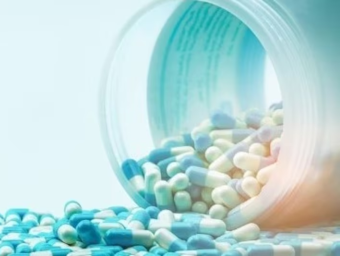Why India's generics players are betting on this diabetes drug | 13 March, 2025

A blockbuster diabetes drug will soon be available to Indian patients at a tenth of its original cost, as its patent expires. At least four Indian generics players have launched cheaper variants of the drug, which is used to treat type-2 diabetes as well as heart and kidney ailments.
German pharmaceutical company Boehringer Ingelheim's diabetes drug empagliflozin went off patent on Tuesday, and India's top generics makers lost no time in introducing ultra-cheap versions of the drug, which also aids in moderate weight loss.
Industry players say the drug holds significant promise for volume growth as it becomes more affordable.
India-focused drug makers like Mankind Pharma, Alkem Laboratories, Glenmark Pharmaceuticals, and Corona Remedies rolled out generic versions of empagliflozin on Wednesday, priced 80-90% lower than the original.
"You put all your energy, passion behind a winning horse...with the kind of trials, reports, the kind of literature empagliflozin has created in the last couple of years, we are very, very confident that this will do even better," Rajeev Juneja, managing director of Delhi-based Mankind Pharma, told Mint.
While the innovator drug, under the name Jardiance, was sold at about ?60 per tablet for the 10 mg dosage, Mankind has launched it at ?5.49 per tablet for the 10 mg variant and ?9.90 per tablet for the 25 mg variant. Meanwhile, Glenmark will sell it for ?11 per tablet for the 10 mg variant. Alkem said its range is priced 80% lower than the innovator drug.
As of February 2025, India's market for empagliflozin is estimated to be ?758 crore MAT value, according to data from Pharmarack. MAT value, or moving annual total, refers to the total sales value over the previous 12 months. The sales volume of the drug has been growing at a compound annual growth rate (CAGR) of about 1% over the past five years (and 3% in value terms), according to Pharmarack data.
Juneja anticipates an about 50% volume growth in the next year or two, as prices drop sharply.
"The [doctor] coverage would be humongous - physicians will be covered, cardiologists, diabetologists...our coverage would be approximately five to six times more than whatever coverage is happening right now," Juneja said.
Meanwhile, others like Lupin and Torrent Pharma have licensed the drug's combinations from Boehringer Ingelheim, but have not clarified their pricing strategy post-patent expiry. While Lupin declined to comment, Torrent Pharma did not respond to Mint's query until press time.
A patent gives a drugmaker an exclusive right to manufacture, sell, and profit from a drug for a specified period, and its expiry allows other companies to make and sell cheaper, copycat versions. Empagli-flozin belongs to a class of drugs called SGLT-2 inhibitors, which work by preventing the kidneys from reabsorbing glucose, leading to increased glucose excretion through urine.
Apart from helping treat type-2 diabetes, key trials and studies on the molecule over the past few years have shown its efficacy in treating and preventing heart and renal failure.
"Currently, 10-15% of our population can take this, but with the reduction in price, 50-70% of deserving patients with diabetes and/or heart and kidney issues could be prescribed this," Dr Rajiv Kovil, a Mumbai-based diabetologist, told Mint.
"The perception of the drug has been good among the doctors," Dr. Kovil said, adding that the main hindrance in prescribing the drug to a larger set of patients was its high cost.
Empagliflozin might become the first drug to be prescribed for patients in the first line of treatment of type-2 diabetes.
"Metformin was the first drug of choice. But now, we might prefer this as a first or second line drug of choice," Dr Sonali Kagne, consultant endocrinologist at Mumbai's Sir H.N. Reliance Foundation Hospital, said.
While empagliflozin was restricted to metros and tier-I cities so far, players like Alkem and Mankind aim to expand its access and availability to tier-II and tier-III cities where they have a strong presence.
India's incidence of cardiodiabeto-obesity conditions is growing, with these segments making up a big chunk of noncommunicable diseases.
There are an estimated 101 million Indians with diabetes, and 136 million pre-diabetics, according to a 2023 Lancet study. The country's anti-diabetes drug market has grown to about 17,000 crore in 2024, from 5,000 crore in 2014, according to Pharmarack.
According to IQVIA sales data for the 12-month period ended January 2023, India's market for SGLT-2 inhibitors and combinations was ?2,904 crore.
Another SGLT-2 inhibitor drug, Dapagliflozin, went off patent in India in 2020.
Within three years of expiry and prices reducing by a third to a fifth of the original cost, its volumes grew 10x, according to Pharmarack data. There are about 200 brands and 92 companies marketing Dapagliflozin in India currently.
(Source: Mint)












